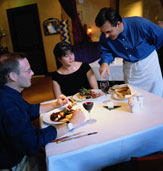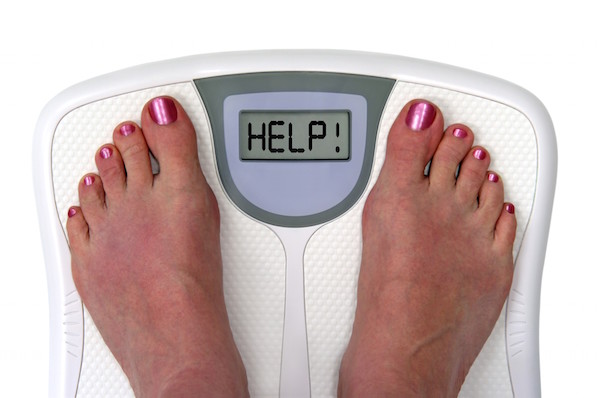
THURSDAY, Feb. 28 (HealthDay News) — Eating out can lead to weight gain and increase people’s risk for heart disease, diabetes and other serious health issues because popular menu items often have more fat, calories and saturated fat than meals typically prepared at home.
That’s according to an expert from the University of Alabama at Birmingham, and it’s particularly worrisome since a LivingSocial Dining Out Survey revealed Americans eat out, on average, four to five times each week.
“When you combine weight gain and the poor eating habits that can come along with dining out, it could be a recipe for disaster for your heart health,” Jody Gilchrist, nurse practitioner at the UAB Heart & Vascular Clinic at Acton Road, said in a university news release.
“If you eat out enough and are not careful about what you eat, you could be looking at metabolic syndrome, a group of risk factors that raises your risk for heart disease and other health problems, including high cholesterol and diabetes,” Gilchrist added.
One additional meal eaten away from home each week can add roughly two extra pounds a year, according to the U.S. Department of Agriculture. There are ways people can avoid extra calories and protect their heart health when dining out, Gilchrist pointed out. She offered the following tips on how to make healthier choices at restaurants:
- Be prepared. “If you know you’re eating out, conserve calories ahead of time,” Gilchrist recommended. “Also, investigate where you are going if you can. Use the Internet to look up healthy menu options, or download a smartphone app that lists calorie counts for specific restaurants. See what healthy menu options they have, and choose one of those instead of something with more calories or fat.”
- Limit portion size. The U.S. Centers for Disease Control and Prevention reports that eating meals in restaurants where portions are large is linked to obesity. “If you have to eat fast food, choose something from the kids’ menu,” Gilchrist said. “In a restaurant, pick an appetizer instead of a full meal, or split an entree with someone to save calories.”
- Consider how food is prepared. “Don’t be shy about asking how something is cooked or for substitutions,” noted Gilchrist. “Key words to avoid include ‘fried,’ ‘batter,’ ‘creamy’ and ‘cheesy.’ Stick with foods that are baked, broiled, grilled, steamed or stir-fried.” Replace high-fat dressings with balsamic vinegar dressing on the side, or skip dressing entirely. Opt for a vegetable or baked potato instead of french fries.
- Lighten up. “Try to get ‘lite’ cheese on pizza, and then load it with veggies,” Gilchrist advised. “Add as many vegetables to a meal as you can, and eat them first. They will help you feel full more quickly, and you get the bonus of added nutrition.”
More information
The American Heart Association provides more tips on how to eat healthy when dining out.

